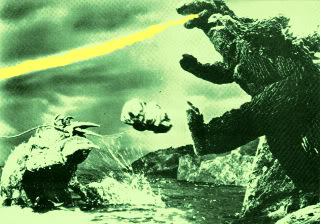Week Twenty-Five: "The Rescue"
/In forty years on the planet, I have learned something about myself. I am a coward.
If you’re looking for me when the chips are down and lives are on the line, know that you can find me running around in circles, jazz hands flailing, screaming “we are all going to die!”
It’s who I am.
My tendency toward panic makes for some really good stories. Like the time the corn tortillas caught fire in the toaster oven and I tried in vain to blow them out with hyperventilating breaths, only adding more oxygen to the fire and engulfing the oven in flames.
Or the time I got so distracted trying to keep photos dry while running from my car to the porch during a thunderstorm that I accidentally left my car door open, allowing my frightened, filthy dog to take shelter inside until the rain subsided and the seats were drenched in matted hair and mud.
Or anytime I’ve walked through a spider web.
Ever.
Unfortunately, this little quirk of personality is not something you can hide. Like a love of show tunes or an obsession with the number seven. When emergencies happen, all senses are heightened and folks tend to notice the irrational man-child making matters worse. But over the years I’ve found you can cover up the embarrassment with a blanket of self-deprecating humor.
I often see news reports of people coming to the aid of someone in distress. You know the kind of thing I’m talking about. Could be a car on fire. An assault in broad daylight. A hole in the ice. I have always feared that I may someday be caught in the same situation and I’ll freeze. Or worse yet, it will happen while my kids are around, and they will remember their dad as the guy who sat by and whimpered while other Good Samaritans did their civic duty.
Last week I wrote about my magical surprise birthday week with friends and family on the Florida Gulf Coast. It was an acceptable expense in our Year Without A Purchase, because it was all about building connections with others through shared experiences. Setting aside our stuff and really talking.
So, let’s really talk. Since I’m airing my own personal dirty laundry and embarrassing traits, it’s high time I mention the most significant experience of the week for me. Perhaps I’m reading too much into this, but it may just be the reason God put me on that trip in the first place.
It happened on our first day at the beach. As we walked down the wooden steps to the sand, I heard a sunburned tourist mention it was a “red-and-purple-flag day.” As the words exited his mouth, I glanced at the sign at the foot of the steps and saw the red flag indicated “High Surf/Strong Currents” and the purple flag warned of “Dangerous Marine Life.”
I have been stung by a jellyfish before. I was eleven. I was lying face down on an inflatable raft when two of them washed up onto the backs of my legs. I immediately began kicking and screaming, which repeatedly launched the creatures and their poisoned tentacles into the air and back down onto other parts of my anatomy. When the fireworks were over, I had total of seven stings on various parts of my body, and zero chance that any of the cute girls on the beach would ever turn into a legitimate love interest. The mere thought of Dangerous Marine Life took me to a whole new level of anxiety, conjuring visions of late night Japanimation movies where scores of people run along the beach to escape the wrath of The Sea Monster covered in seaweed, until Godzilla comes to the rescue.
Cue panic.
We pitched our tent and I cautiously entered the water. I quickly learned that marine life would be the least of my problems. The crashing waves made it difficult to stand and the undertow was strong. Gabby and I wrapped the kids in the safety of their life vests and kept them close to shore. After two minutes and a belly full of sea water, Jake declared at 150 decibels to the entire assembled crowd,
“I hate the beach!”
Gabby took him out of the water for a sand castle break, and I remained in the surf with my brother-in-law, Victor, and his daughters, Mia and Julianna. We were chatting about the strength of the currents when we heard a high pitched scream coming from deeper water. Almost cartoonish. At first, I thought it was Jake. But he was on the beach.
I asked Victor, “Was that someone screaming?”
He gave me a puzzled look and said, “I think so.”
“Sounds like they are joking around.”
“It does.”
Again, we heard the voice. This time, it was clearer. A woman’s voice, over-emphasized. Like a stage play.
“Help!” “Help!”
I turned to the girls and chided,
“She really needs to stop that, or someone might really think she needs help.”
They agreed.
I looked out toward the deeper water and saw nothing. A large wave was blocking my view. It broke just above my head and came crashing down. When I came out of the surf, I wiped the salt water from my eyes and focused. Thirty yards away, in deep water, was a blonde woman in her mid-forties. She was waving her arms above her head. A round-faced, bald headed man was ten yards to her right.
She shouted, “My husband needs help!”
I froze.
What do I do?
I scanned the water for others who were closer to the couple. A half-dozen swimmers were nearer than I was, but there were noises all around, and they were distracted. And for good reason. They were surfing the waves or laser-focused on the safety of their own children. And that’s when it happened.
I started swimming.
I managed to close the gap by ten yards in no time. I swam past two men standing in the surf. A young guy in a yellow shirt and another in a hat. I pointed toward the bald head bobbing at the surface and yelled, “That guy needs help! Maybe his wife, too!” I saw them look toward the couple in distress and I continued swimming.
What started as Michael Phelps ended as Michael Moore. By the time I reached the man, I was spent and struggling. I tried to touch my feet to the sea floor. No luck. Too deep. The man was now floating on his back. His face was the color of dishwater. He was gasping for air, but the waves would wash over him and cause him to swallow mouthful after mouthful of water. I asked if he was in trouble. His eyes got wide and he nodded his head. It was then that I realized something.
I have no clue what to do.
The man weighed over 250 pounds. I weigh a buck seventy-five with shoes on. My only official lifeguard training consists of watching old episodes of Baywatch. I look down and note that my swimsuit is the wrong color for this operation. David Hasselhoff always wore red. What’s more, those lifeguards always brought some sort of floatation device with them. The men had the red foam lifeguard baton. The women had their breast implants.
I had neither. And I was terrified.
* I looked just like the fella' in the middle. Only whiter, more frightened, and less muscular.
So I went with my instincts. I grabbed the man under his arms and started pulling him toward the shore, nearly ripping out the poor guy’s underarm hair. He simply had no strength left. I was underneath the man now, and it felt as if I was hauling a sleeping bag full of wet dough toward the beach. I had heard that you never try to swim directly in toward the shore to fight a rip current, but I tried anyway. After a few strokes, I noticed we were making progress, so I stuck with it.
“It’s OK!” I shouted. “We’ll be where you can touch soon!”
He pointed laterally, as if he wanted to go down the beach. But I assured him we were OK and kept pulling him.
“We’re moving. No worries!”
After thirty seconds more of swimming, I stopped to check the depth and noticed I could touch when the crest of a wave passed by.
“You can touch here!” I said. “Try to stand!”
He refused. Just kept kept pointing sideways.
“Try to stand!” I screamed. “You can touch here! I promise!”
At that moment, the man in the yellow shirt swam up and offered the voice of comfort that I was lacking in the moment. He grabbed underneath the man’s left arm and spoke in a calm, soothing voice.
“You’re OK, buddy. It’s going to be OK.” He must have repeated that phrase four or five times as we pulled the man toward the beach.
He replied, “Get my wife.”
I looked toward the man’s wife. The man with the hat and two others were now standing with her in the surf. She was crying. Sobbing.
Soon, the water was shallow enough. The man tried to stand, but his knees gave way. He kneeled in the surf for a moment, took a deep breath and said, “I’m fine now. I just want to sit for a minute.”
His wife and a friend came up to meet him and helped him to the shore. They said a simple thank you and found a spot in the sand for him to sit down and collect himself. He looked straight out toward the water and said, “I was fine, and then I just couldn’t catch my breath anymore, and my body was too tired to swim.” He sat slumped in a ball for another ten minutes, staring blankly out to sea.
The next day we learned that four people had drowned that week. Victims of vicious rip currents. Two men, plus a girl and her grandfather. He swam out to save her and both perished. A tragedy.
That’s when it hit me like an anvil to the head. I had been in danger, too. That guy could have panicked and pulled me under. The current could have carried me out to sea. I could have died.
But I didn’t.
The following day at the beach I saw what the man had been pointing at. There was a shallow sand bar not ten yards from where I caught up with him. He knew it was his refuge. And it would have made the rescue much easier. Instead, the poor guy is probably cursing my name. Embarrassed by the lack of hair on his right underarm. Suffering through physical therapy to nurse a rotator cuff injury I gave him when I started yanking him toward shore. I’ll never know if it was truly a heroic act or simply a very stupid decision. But one thing is certain.
I’m not a coward.
And neither are you.
So consider those stories in your head. The lies you have told yourself since childhood. Since college. Since your last corporate downsizing. The ones that drown out the voice of God, spoken so often they are memorized, like a script to an awful, hurtful play that graces the stage of your memory. And realize.
They are only stories.


